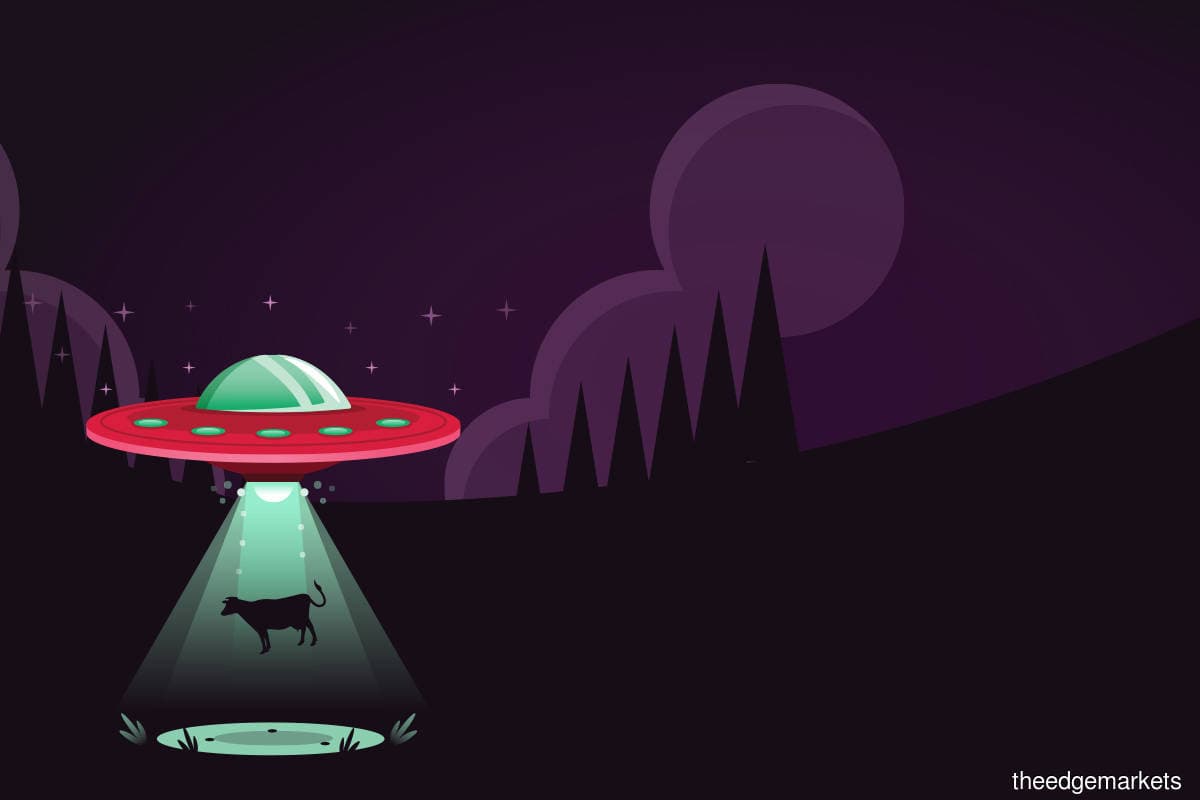
This article first appeared in Digital Edge, The Edge Malaysia Weekly on September 6, 2021 - September 12, 2021
The pandemic severely restricts our movements and most people are already suffering from a severe case of cabin fever. Despite the high vaccination rates, the number of cases — and deaths — continue to climb, so for the time being at least, it would be advisable to confine flights to that of the imagination.
While you remain homebound, you may like to immerse yourself in some of the best sci-fi fiction over the past 70 years, and grapple not just with imagined worlds but the great philosophical questions.
1 The End of Eternity by Isaac Asimov (1955)
This book, written more than 60 years ago, is practically a must-read if you want to get into the genre. Generations of readers have been mesmerised by Asimov’s imagination and his thoughts on time travel and whether it is alright to mess with “reality”, even if one has the best intentions at heart (such as the reduction of harm or potential human suffering).
In the book, humanity uses time travel to construct “Eternity”, an organisation outside time which aims to improve human happiness by observing history and, after careful analysis, taking small actions to cause reality changes to reduce human suffering. This comes at the cost of a loss of technology, art and other endeavours, which have been prevented because they were judged by the Eternals — members of the organisation — to have a detrimental effect. And there is also a love story embedded in the book, where the protagonist and his lady love meet across the centuries, are separated, and then reunited.
Although cloaked in sci-fi jargon, technology and gizmos, the novel grapples with age-old questions of censorship (except, in this instance, they are censoring reality rather than a book or a movie). Should an organisation, however well-intentioned, have the power to decide what is best for everyone? And is a safe seasonless world without adversity really the best way forward?
2 The Three-Body Problem by Liu Cixin (2008)
The Three-Body Problem is the first novel in Liu’s Remembrance of Earth’s Past trilogy. The author wrote in the preface that his works are very much inspired by Arthur C Clarke, one of the “Big Three” of science fiction — the other two being Asimov and Robert Heinlein.
If you are used to western sci-fi, this book may serve as a refreshing change because the story has been created within the setting of China’s Cultural Revolution. Within this unfamiliar setting, the story incorporates familiar sci-fi tropes such as a looming alien invasion, secret agencies set up to communicate with said aliens, the effects of having more than one sun on a planet and environmental degradation (Rachel Carson’s Silent Spring is a major source text).
The book is wonderfully clever and complicated and it will draw you in and keep you occupied, long after you have turned the last page.
3 Neuromancer by William Gibson (1984)
If you enjoyed the movie The Matrix, chances are you would enjoy Gibson’s debut novel, Neuromancer — a portmanteau of neuro (as in relating to the brain), necromancer (magician) and New Romancer. The novel has been described as the archetypal cyberpunk work and it is credited with popularising the term “cyberspace” when it came out, roughly a decade before the existence of the World Wide Web.
It revolves around a washed-up hacker, Henry Case, hired for one last job, which brings him up against a powerful artificial intelligence.
The novel has entered the sci-fi canon and one literary critic, Larry McCaffery, described the concept of the matrix in Neuromancer as a place where “human memory is literalised and mechanised … multinational information systems mutate and breed into startling new structures whose beauty and humanity are unimaginable”.
4 Klara and the Sun by Kazuo Ishiguro (2021)
This fairly recent novel, written by the Nobel Prize-winning writer, leads people to reflect upon the crisis faced by humanity from the perspective of a droid.
In the story, Klara is an Artificial Friend (AF), a droid that serves as a companion for children. After Klara is picked up by her owner Josie from the store, she discovers that Josie’s mother may have other, less wholesome intentions, which have to do with replacing a soon-to-be-expired beloved human with an artificial equivalent.
Readers may marvel at the many contradictions set forth in this novel where (some) humans are portrayed as selfish, destructive and, frankly, robotic while the droids are selfless, loving and altruistic.
5 Stories of Your Life by Ted Chiang (1998)
What if you could see into the future? Would you rewrite the script and edit out the mishaps? (Does this remind you of Asimov’s The End of Eternity, which seems to grapple with this question?)
In this novella by Chiang, linguist Dr Louise Banks narrates the day her daughter is conceived. She recounts what will happen to her unborn daughter, including her tragic ending, after managing to decipher an alien language that provides her with the ability to glimpse into the future.
The story moves into the philosophical question of free will. Does knowing the future imply an absence of it? Or can the knowledge serve as a cheat sheet to divert disasters? Read it and make up your own mind.
This novella, which won the prestigious Nebula award, was later adapted into the film Arrival.
Save by subscribing to us for your print and/or digital copy.
P/S: The Edge is also available on Apple's AppStore and Androids' Google Play.




